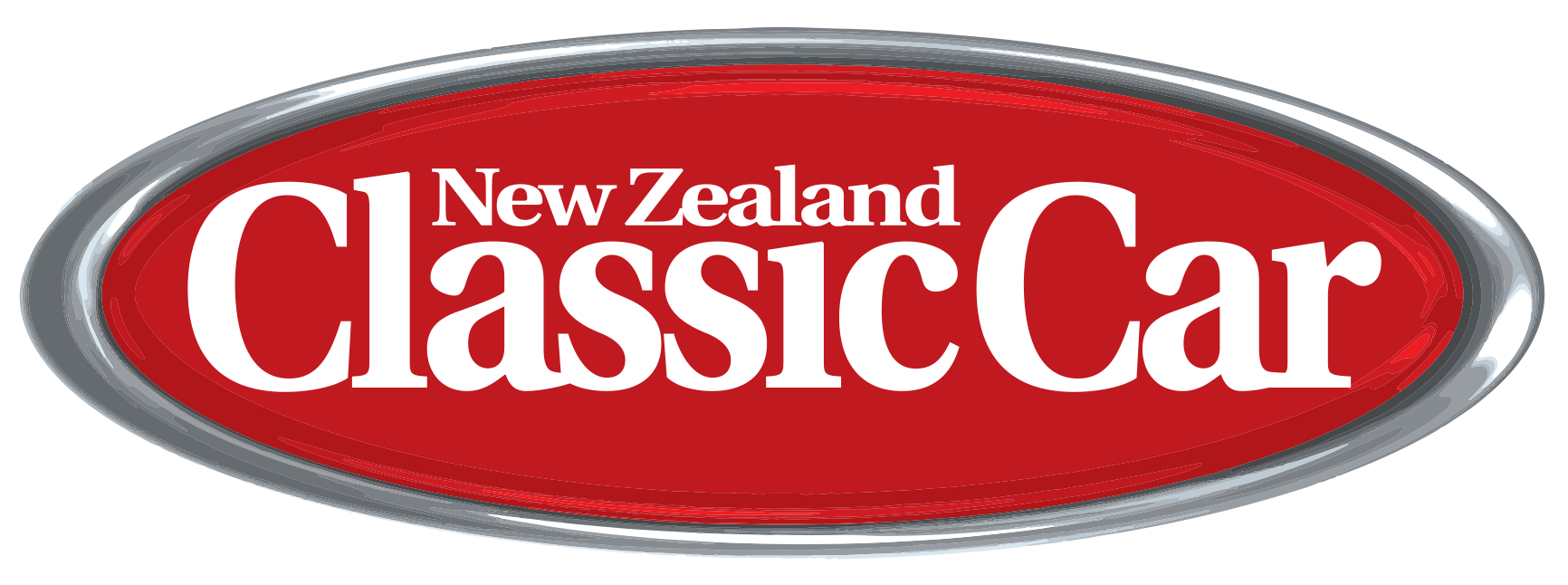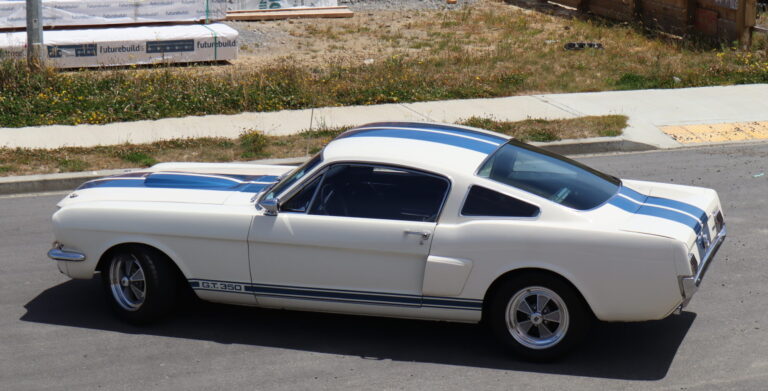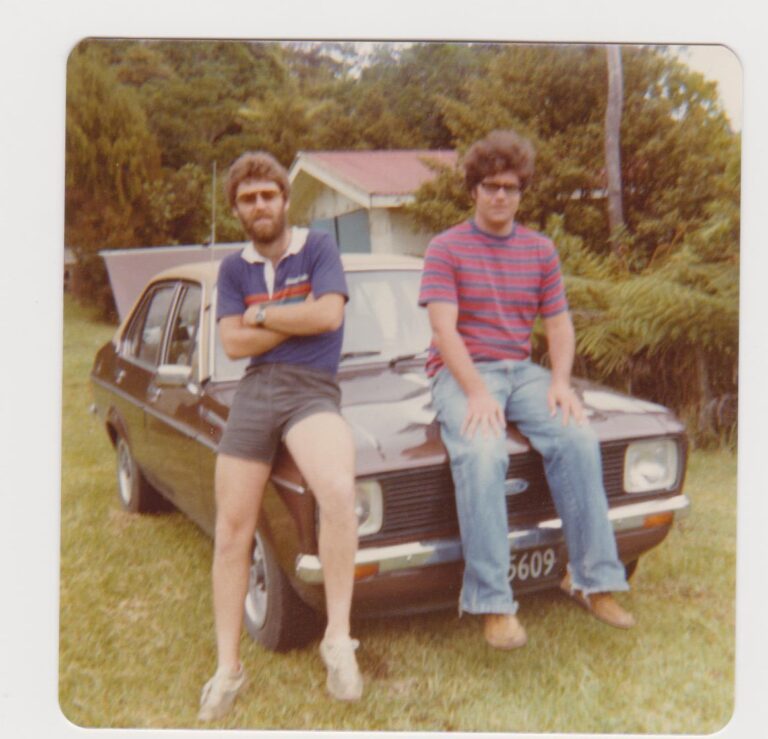data-animation-override>
“Trevor Stanley-Joblin recalls memories of camping and caravanning from the 1950s to 1970s — backed up by recollections from his family”
Back in the September 2006 issue of New Zealand Classic Car, I wrote a small article about a book, Roam Sweet Roam by Brian Briggs, a well-known single-seater special builder (the side-valve Ford V8–based Briggs-Mercury) in the ’50s. The book recounts Brian’s memories of caravanning over many decades, and it certainly brought back happy memories for me.
Like most things today, outdoor camping has come a long way since my early memories of camping with my parents back in the ’40s and ’50s — and my first memory of camping goes back to around the mid to late ’40s, when we camped beside the Waipara River in North Canterbury. With no such luxuries as chilly bins in those days, we had only one way to keep things cold, or even just chilled, and something like a set jelly would be kept cool by floating it in the river.
Vintage caravanning

In the years immediately after World War II, caravans were pretty rare in New Zealand, and virtually all those which did exist here were home made. Having said that, there were a few local factory-built caravans pre-war, such as the Moore-Schulz ’vans built in Christchurch. The oldest caravan known to exist in New Zealand is owned by ex Fair Go frontman, Kevin Milne. His 1936 Tanner clone was featured in the March 2011 edition of New Zealand Classic Car. Tanner caravans were made in Auckland from the ’30s until the ’50s, and the company used to also sell plans for making your own caravan.

Milne was keen to establish exactly where his caravan had been built and by whom — eventually tracking down Ian Tanner, then aged 92. After looking at all the photos Kevin brought along with him, Ian concluded, “This looks very much like a Tanner but we didn’t make it at our factory in Auckland, my thoughts are that almost certainly a professional had bought Tanner plans from us to build their own caravan.”
Everything that had been in the drawers fitted to the Tanner’s interior was still there — cutlery and crockery, old fishing gear, brand-new packs of Sunlight soap, brand-new wooden pegs, and an excellent supply of old ’50s magazines. There were loads of old pink weeklies, and the cupboards were lined with ’60s newspapers — one boasting the headline, “Just who are The Beatles?” The previous owners of the caravan, the Williams family of Waituna West, near Feilding, told Milne that their grandfather had purchased it new in the ’30s from Feilding Central Garage.
Backyard builders

This ‘Retro Espresso’ — made by Classic Caravans during the ’60s or ’70s — is now in use as an ice cream and coffee shop at Jimmy’s Beach in Kaikoura
During the period from around 1946 through to the early ’60s, many a handyman made a gallant attempt to build a caravan for his family. I say ‘attempt’, because the task wasn’t as easy as it may have first appeared. For those handy working with wood and who owned or had access to woodworking machinery, making a caravan’s wooden frame was not a big challenge — especially if the builder was a cabinet maker by trade. Once you got the frame up and all braced tightly, then came the most difficult part of all. Very early ’vans were clad in hardboard, but big advancements arrived in the form of sheet aluminium and, later, the introduction of ribbed aluminium sheet.

Often parked in Marine Parade, New Brighton, Christchurch, this ’60s caravan is used by fishermen on the pier
I can remember so well, even today, my father trying to line the inside of his newly constructed egg-shaped caravan in Bison Board or hardboard, brown in colour. Dad, a bricklayer by trade, soaked the end he wanted to bend in the family bath full of water. Once it was soaking wet he would rush out to the caravan with the panel, and bend it into the shape of the front or back as he nailed the sheet in position. I vividly recall his temper flaring up when a sheet broke, presumably because the bend was too sharp or the board wasn’t wet enough — or both! Dad was normally a very placid man, but on this occasion that break got the better of him. I think one contributing factor was that one sheet cost several hours’ work in monetary terms.
Of course, once you had (or built) your caravan, you’d then need a tow car. Our first such vehicle was dark blue Chevrolet, about a 1929–’31 model.

This 1966 Princess was manufactured by the Modern Caravans Group of Dunedin, and still retains its original manufacturer’s nameplate and badges. Spotted at Woodend Beach Motor Camp, 2013
Our tow vehicles improved vastly after that gutless Chev, and just as well, as early caravans were rather heavy compared to today’s lightweights. A year or so later dad purchased a Nash Layfayette, about a 1936 model, I would guess. What an improvement! Ford V8s were next in line, the one I remember the most being a ’39 De Luxe. Then came post-war cars such as Vauxhall and Holden, but by that time one-by-one we six offspring had flown the coop, so to speak.
Camping experiences

The family Falcon XP Estate parked up at Queenstown Motor Camp in 1967
During the period from 1958 when Lorraine and I married, until we purchased our first caravan, hiring private caravans was the order of the day. The first I recall was the drop-floor 8×4 trailer that dad built. Over the years a variety of makes and sizes were hired. Obviously, the number of berths required increased as our family grew — we had three children in total.

In the years from around 1964 to about 1986 I owned many Holdens and Fords, and without going into detail, the worst towing vehicle I ever owned was a ’65 HD Holden station wagon, especially when you consider that towed caravans were inclined to sway a little from side to side at speeds above 80kph. The best towing vehicle I ever owned during that same period was a V6-powered Zodiac MkIV — you never knew the ’van was being towed, and I towed the same ’van with both vehicles, so it wasn’t the caravan’s design, weight distribution or tyre pressures. I put the difference down to the Zodiac’s independent rear suspension.

Trevor’s father built a trailer-camper exactly like this one around 1955 — Trevor borrowed this before buying his first caravan
Turning back the clock to 1966, Lorraine and I, with our three young children, travelled up to Renwick, just outside Blenheim, to attend a motor-racing meeting — part of the summer Tasman Series. It was a tight street circuit, used only that year, and I can still recall John Miller’s Renault-Corvette hitting a pole which was surrounded by hay bales. A fire broke out but was quickly extinguished. Other saloons I also remember that were outstanding included Rod Coppins’ famous Zephyr-Corvette, and David Simpson’s Lotus-powered Anglia 105E.

This 1951 Morris Isis is identical to the black example that Trevor’s father pulled his trailer-caravan with from 1955–’57. Despite the Morris’ big overhead-valve six, the Isis was gutless, and its slow four-speed column gearchange certainly didn’t help
After the day’s racing was over, we headed to the Blenheim Holiday Motor Park and, on arrival, were allocated a site. The five of us began to unpack the trailer, item by item, to locate our first requirement — the tent. Although the tent fly was there, I had overlooked the most important item of all — the tent itself! We couldn’t afford a motel in those days, besides, they would have probably all been booked out by the racing teams and supporters. There was no option, with limited finances, but to return to our home in Christchurch that evening. I think we arrived home about 11.20pm, with three young, very sleepy children on the back seat!
Memorable moments

There were at least two HD Holden wagons, both in Beaver Brown with a white roof. I vividly recall the time Lorraine and I were camped at Wanaka Motor Camp back in about 1968–’69. With our three young children in the back of one of the above-mentioned Holden wagons and asleep on a double-bed mattress, we departed from the camp about 4am to drive to Teretonga motor-racing circuit in Invercargill to catch the day’s Tasman Series racing. The circuit is a much improved complex now, but we spectated among the sandhills, lupins and tussock back then.
One trip of many that I recall was the time we travelled the Haast Pass on the West Coast of the South Island. The highway was newly opened at that time, and parts of it were still under construction. As everybody knows, it rains a lot on the coast, and I can still picture to this day the sight of a road worker signalling me to come through this narrow gap between a sheer drop on my left, and a slip they were part of the way through clearing on my right. To make matters even more nerve-racking, it was raining. With the family aboard our recently acquired one year-old teal-coloured Ford Zodiac, and towing a near-new caravan, you can understand my reluctance to obey the man’s hand signal, but we made it past the obstacle.

There have been many great moments and experiences to cherish over the years — some fun ones, but also some ‘oh-bugger!’ moments. Like the time we were camped at the AAC motor camp at Hanmer around 1971. We were all set up with the awning attached and the five of us tucked snugly in when, without warning, a great gust of wind found us, bending all the aluminium support poles and collapsing the entire awning. I can still visualize all of us out in the dark battling huge winds as we struggled with the out-of-control awning.
However, not once in all the distance travelled during almost four decades towing caravans or, in more recent times, travelling in our camper, have we had a mechanical breakdown or even a puncture. Certainly not one that we can recall anyway, so in that respect, we were lucky. I now hand over to our three children — all now adults — to relate some of their memories of camping and caravanning.
Those were the days
By Pamela Mary O’Grady (Trevor and Lorraine’s first-born)

My memories of holidaying during childhood are mainly the times we spent using welfare cottages. Dad paid into a welfare fund for 23 years, giving us access to motel-like units all over New Zealand. However, it was the warm summer holidays we all recall with great passion.
Camping at Peel Forest, for instance. I remember going for walks in the magnificent rainforest there. Climbing up gradually, we would come across huge trees believed to be centuries old. Then there were the many wonderful waterfalls. In particular, I recall all the beautiful sounds coming from the native birds — just lovely.

Trevor and Lorraine’s children, right to left: Pamela O’Grady (now a self-employed interior colour and furnishing consultant), Paul Stanley-Joblin (now a self-employed multi-award-winning architectural draughtsman, and Carol Rendle (now a self-employed interior decorator)
Living at the Aranui Motor Camp in our caravan, while our two-storey house overlooking the Avon River rowing course was under construction, was another time I recall with fond memories. We spent time in the camp swimming pool during weekends, and with no distractions such as television, we excelled in our homework and received high marks in school reports. Then there were the times we spent at the Spencer Park Beach Holiday Camp, during summer-time school holidays. For up to two weeks, dad would go off to work while mum and we three children went over to the beach. Come lunch time, it was just a few minutes walk back to our caravan.
Probably the best time away from Christchurch, for me, was when we went up to the Nelson Province via Lewis Pass, towing our ‘classic’ caravan with the maroon-and-white XR Falcon Fairmont. Fish and chips on Tahuna Beach I loved — but the best of all without a doubt was, and still is, over the hill at the golden-sand beach at Kaiteriteri. With its calm flat sea this will always remain my favourite place, and the motor camp was right opposite the beach.
Many years later, with my own daughter, Sophie, now aged 19, I look back on those great days we had with our mum and dad out camping and caravanning. All three of us realize how fortunate we were to have parents who had the time, passion and resources to spend fun times with us over those growing-up years — times and memories we will cherish forever.
Turning back the clock
By Paul Trevor Stanley-Joblin

The first caravan I recall us owning was a nearly new 1972, 4.1-metre (13-foot six-inch) Zephyr caravan — still my favourite-looking ’van. We bought a lot of new camping/picnic gear for it mostly in orange, white and olive green, all very cool then, and now iconic ’70s classics.
We had many caravanning experiences — one caravan we towed through the Pigroot down near Dunedin, a dusty and winding road back then and the caravan door seals weren’t that good — you can imagine the result. Luckily that one was a rental!
The most significant experience came during 1974–’75 when I was aged 13 to 14. We lived in our caravan in the Aranui Motor camp, while we were getting our house built. The camp no longer exists, having been taken over for a housing development, and as it happens our old house doesn’t exist either any more, having been taken over by 1100 or so earthquakes, and subsequent red zoning! I have fond memories of living in the camp and going to school from there. Mum and dad slept under the awning, with us three kids in the caravan. There was an older couple living on the site next to us with a light metallic green, VF or VG, two-door Valiant that I liked for its sharp lines — and the indicators on top of the guards were cool.
That caravan served us well, and we took it on one of our trips to Peel Forest. On the way we had to stop in the shade of a stand of trees along Thompson’s Track in mid Canterbury, because the car was overheating. I can recall being parked there with the bonnet up. We were towing a 5.3-metre (17-foot six-inch) Crusader with a Series 5 Hillman Minx. Peel Forest Holidays always seemed to be full of dramas — the walking tracks weren’t as well managed as they are today, and it either started raining or had been raining, and the track had become wet and slippery. One by one we all fell over, and I can recall walking back to camp down the hill road, all of us wet and muddy. Several days later, when it came time to leave, mum and we kids had to get out and walk up that same hill road because dad was concerned the wee Minx wouldn’t get up with the family in the car, and the caravan hitched up. He drove back down the road, did a U-turn, and took a flying run up the hill. The Hillman-caravan combination made it, but the car didn’t ever seem to go the same after that trip.
However, you have to take the bad times with the good, and we had plenty of those over many years. Mum and dad spent as much time as they could with us three children over that growing-up period. Memories that will stay with us forever, especially the camping and caravanning.
Memories are made of this
By Carol Diane Rendle, the youngest

Dad almost always had his holidays during the May and August school holidays, in order to be with us while we were young. I vaguely remember one holiday where we had to wait, often for quite some time, for roads to be reopened, and I also remember seeing great crevasses in the roads which we had to negotiate very slowly and very carefully. There were houses teetering on edges of slips or next to massive gaps where the land had opened up or been washed away. The way I remember it we were going to Nelson, and I have always assumed it was directly after the 7.1 Inangahua earthquake of May 24, 1968. I would have been only five at that time, and dad doesn’t recall it at all, so I can’t be sure that the damage I remember was due to the earthquake, possibly it was after a huge flood somewhere. Anyway, I vividly remember the mess and the huge holes in the roads, it left quite a mark in my memory. Having lived through the Christchurch earthquakes, those old memories are very similar.
We had many great holidays, I think we were a very lucky family. I don’t recall the early tenting days, but caravanning I certainly do recollect. Sometimes during the school holidays we would stay out at Spencer Beach Holiday Park, which was probably less than 10 miles from where we lived. Mum and we three children would have a great holiday, and dad would go off to work as usual, only he’d return to the motor camp instead of home.
I think that was a brilliant idea.
This article was originally posted in New Zealand Classic Car Issue No. 293. You can purchase a print copy or a digital copy of the magazine below:



